Are you using the best DNS server for PUBG? There are lots of options to choose from when selecting a DNS server to use for gaming. Choosing the server with the lowest latency (ping) will result in reduced lag and a more stable connection. There is no blanket statement choice that will work great for everyone worldwide. Your location and your internet service provider’s routing will make a huge difference. The best DNS server to use for PUBG or PUBG mobile will be different for everyone. However, there are a few good overall recommendations.
Many gamers recommend using either 8.8.8.8 or 1.1.1.1. These options often work well, but they are not the best choice for everyone. That is why it is best to test it for yourself.
This test is super simple and will provide you with all the information you need to choose the best DNS server. This process works the same way regardless of if you are playing on PC, PlayStation, Xbox, iOS, Android, or any other platform.
What is DNS and Why Does it Exist
DNS is an essential part of the internet. It largely goes unnoticed by most people. DNS is an acronym for domain name system. The function of DNS is best explained as a giant phone book directory for the entire internet. DNS uses a series of records known as DNS records to associate domain names with various online services. Perhaps the most important DNS record is the “A” record. The “A” record is used to map domain names with IP addresses.
DNS is necessary because computers speak in numbers, often very long numbers, and humans speak in verbal languages. Long numbers are generally easy for humans to remember. Without DNS, websites would have to be accessed using their IP address. For example, if you wanted to visit Facebook, you might enter 171.113.18.217. This would be how all websites would have to be accessed.
There would be no friendly names, and .com would not be in our vocabulary. This would be a horrible browsing experience for everyone. This is why DNS is used, and has been a core element of the Internet since 1985. DNS remains highly relevant today, and with IPv6, it will be more important than ever as IPv6 addresses are even longer.
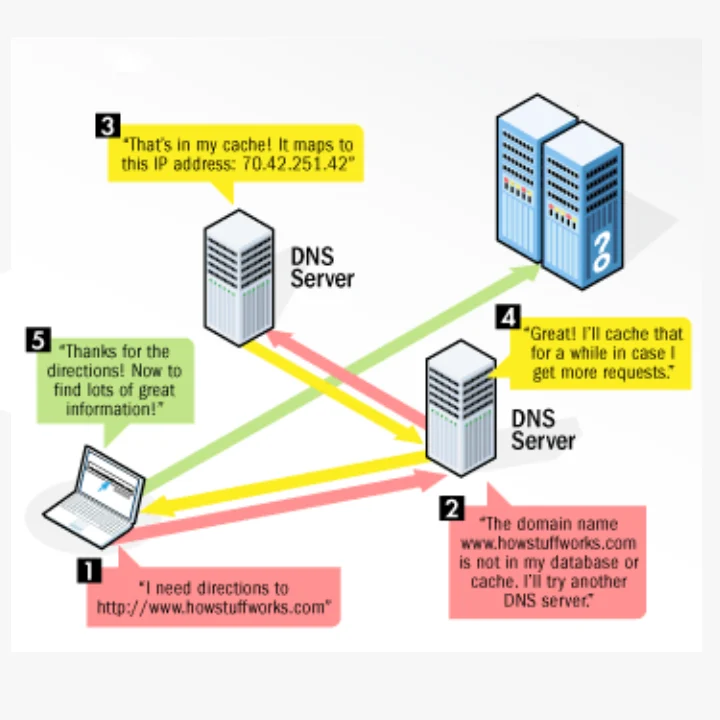
How DNS Latency Affects PUBG Performance
Latency, also referred to as ping, is the round trip time for a packet of data to reach its destination and return. The lower the latency, the more responsive your browsing experience. This is especially important for gaming because nobody likes to experience lag when playing online multiplayer games. DNS is one of several factors that can impact your latency when playing games such as PUBG.
Despite common belief, your DNS server choice does not in any way affect your bandwidth (download + upload speeds). It can, however, make websites load quicker by reducing the initial latency involved in name resolution.
Latency performance is actually much more critical for PUBG gaming than bandwidth. PUBG and PUBG mobile requires very little bandwidth. Anything 4 Mbps or higher is more than enough, with many reporting good experiences with less. Latency is what counts when you want a lag-free online gaming experience on any platform. Latency and bandwidth are essentially unrelated concepts.
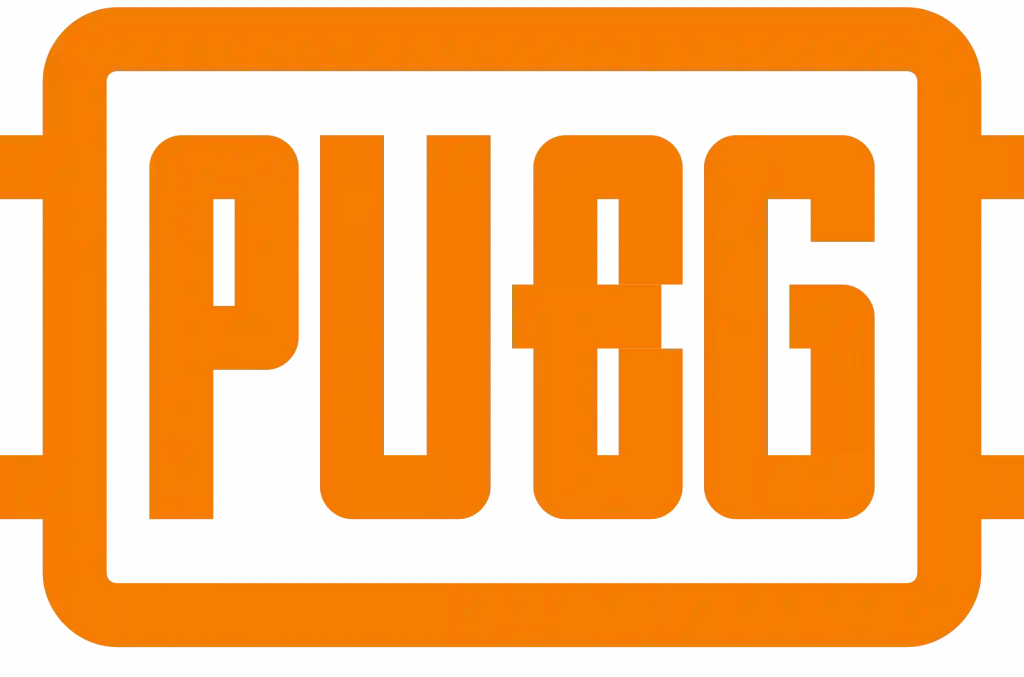
The Best DNS Server for PUBG and PUBG Mobile
Most people will be best off using Cloudflare’s 1.1.1.1 DNS service as their DNS server when playing PUBG or PUBG mobile. In many cases, this will work out great and reduce your latency.
Cloudflare’s Public DNS Server Information
- Primary DNS 1.1.1.1
- Secondary DNS 1.0.0.1
- Primary DNS (IPv6) 2606:4700:4700::1111
- Secondary DNS (IPv6) 2606:4700:4700::1001
However, if you want to ensure you are getting the absolute lowest latency in PUBG, you will want to test it for yourself. There are many other great options to choose from.
Testing Your DNS Latency Using the Ping Command
With this method we are going to use either the command prompt on Windows or the Terminal on Mac or Linux. I am going to be showing the process on Windows, but the process is exactly the same on Mac or Linux.
We will be using the ping command for this test. This is run by typing in the word ping followed by the IP address and then pressing enter. You will then get a series of replies back from the server with the latency listed beside it. Latency is measured in milliseconds ms, the lower the better. If you get an error make sure you are putting a space between the word ping and the IP address.
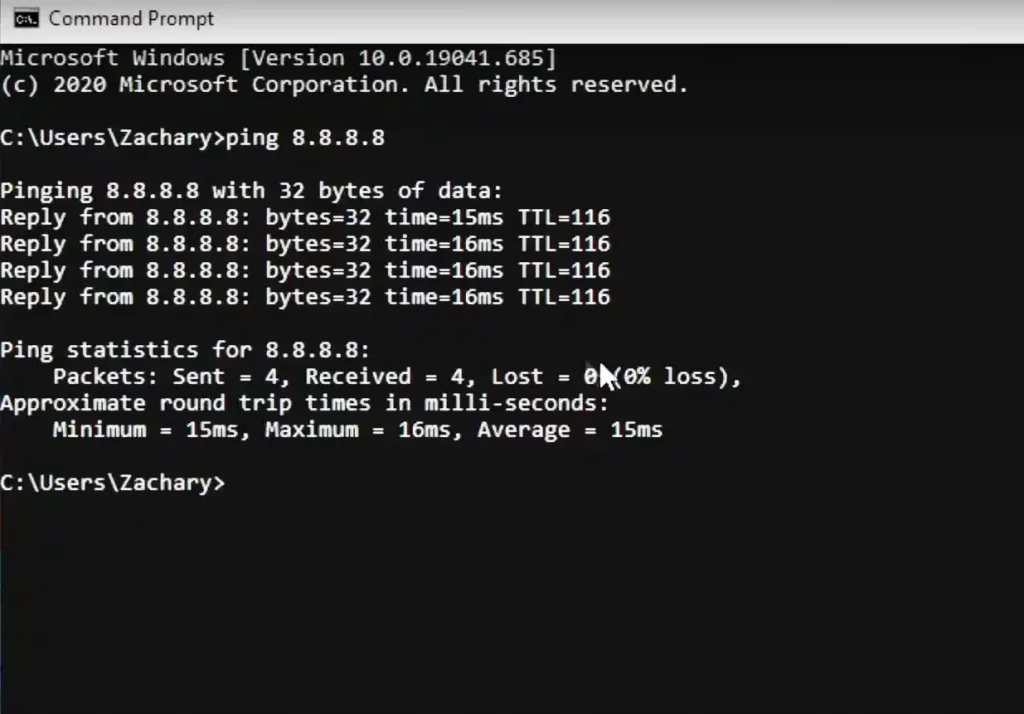
There are thousands of DNS server choices out there. Listed below are the DNS servers that I advise testing. These are all from reputable providers. I do not recommend using a DNS service that is unknown because it could be putting your privacy and security at great risk. Whoever you choose as your DNS provider can see what websites you visit and when.
Google DNS: 8.8.8.8
Cloudflare DNS: 1.1.1.1
Open DNS: 208.67.222.222
Comcast DNS: 75.75.75.75
Level 3 DNS: 4.2.2.2
Quad 9 DNS: 9.9.9.9
Verisign DNS: 64.6.64.6
Comodo DNS: 8.26.56.26
After testing all of the DNS servers, you will end up with data that looks something like this.
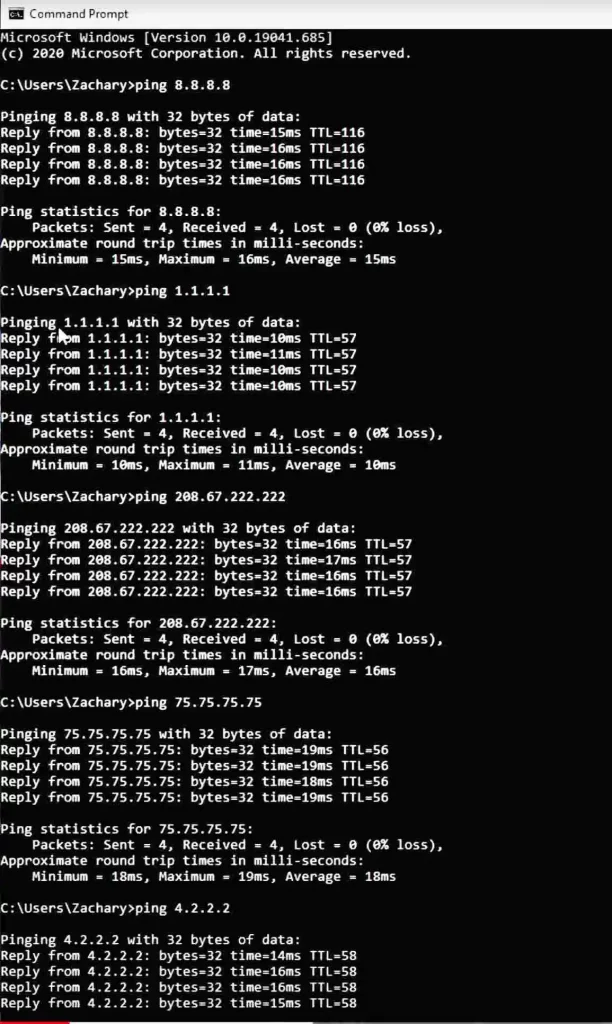
From here, you will easily see the DNS server with the lowest latency. This will differ for everyone. In my case, Cloudflare’s 1.1.1.1 was the best choice, followed by Level 3’s 4.2.2.2.
You have now identified the optimal DNS server to use for PUBG and PUBG mobile. Ideally, I would recommend running this test at least yearly because things change over time.
Testing Your DNS Latency Using Namebench
Another option is to use a software utility to test your DNS latency. I recommend using Namebench. Namebench is an open-source DNS benchmark utility maintained by Google. It is an easy way to test a large number of DNS servers automatically. To get started, download Namebench from here. Choose the version you need, whether for Windows, Mac, or Linux.
You will then want to run the Namebench utility. The default settings are fine, and you do not need to change anything. When the utility finishes, you will see a list of DNS servers in order of latency from lowest to highest.
As I previously stated, I do not recommend using a DNS service that is unknown because it could be putting your privacy and security at risk. Whoever you choose as your DNS provider can see what websites you visit and when. Stick to a reputable provider even if it means an extra millisecond or two.
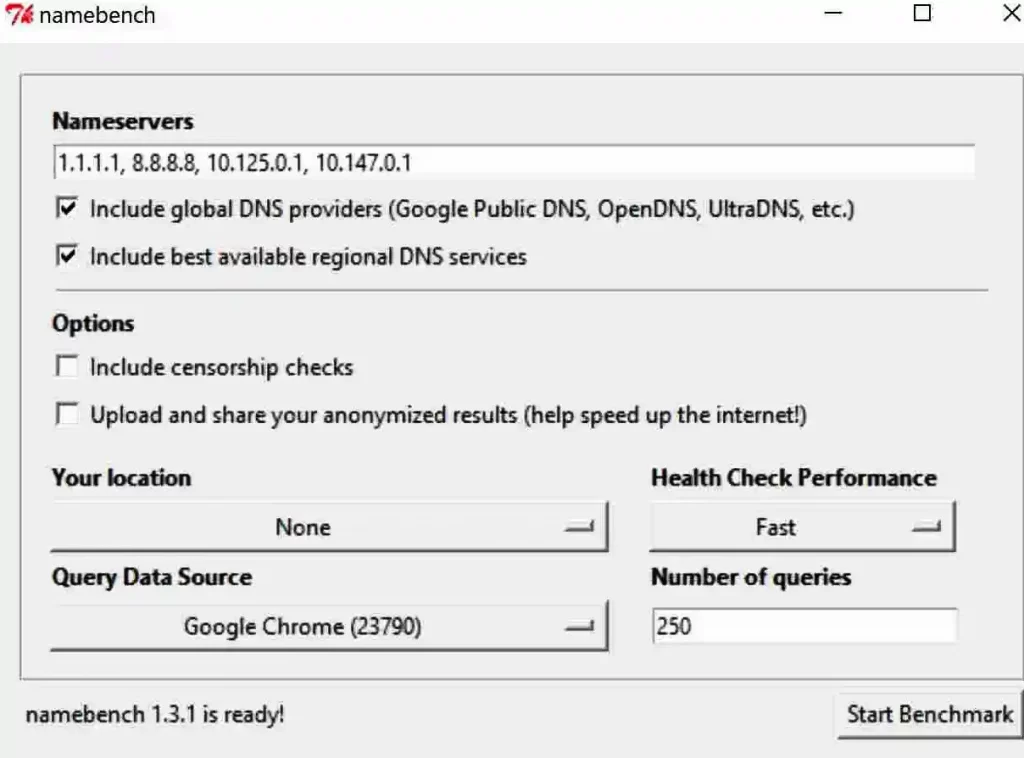
Changing Your DNS Settings
Now that you determined the optimal DNS server, you will need to configure your DNS settings. You can either configure them on your gaming console / PC or on your router. I recommend configuring it on your router if possible, as it will automatically change your DNS server on all of your connected devices.
If your router doesn’t allow you to change your DNS settings, you may have to set it on your gaming device. This will work the same way and offer the same benefits. Setting it in the router is just more convenient because you only need to make the change in one place to change your DNS server on all of your devices.
When it comes to choosing your secondary DNS server, you have a couple of options. The function of having a secondary DNS server is strictly for redundancy. 99+% of the time, your secondary DNS is doing nothing at all. The reason for a secondary DNS server is in case the primary DNS server goes down for any reason, and your secondary DNS server will seamlessly take over.
For your secondary DNS server, you can either use the secondary DNS associated with your primary DNS (Example 8.8.8.8 with 8.8.4.4 and 1.1.1.1 with 1.0.0.1.) or you can simply use the second best from your test as the secondary DNS server. Either method is perfectly fine and will likely make no difference at all.
With your DNS settings updated, you should now see the reduced latency in PUBG and PUBG mobile. Remember that if your latency is still higher than you would like, DNS is only one factor that can affect your latency.
Other factors, including your internet service provider and the level of congestion on the game servers, play a larger factor than your choice of DNS server. Using the optimal DNS server is, however, an easy way to squeak out that little extra bit of performance.
